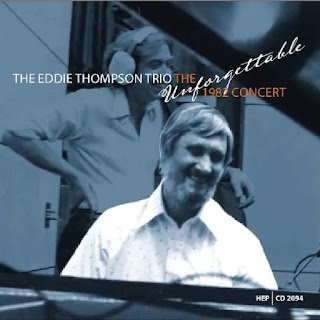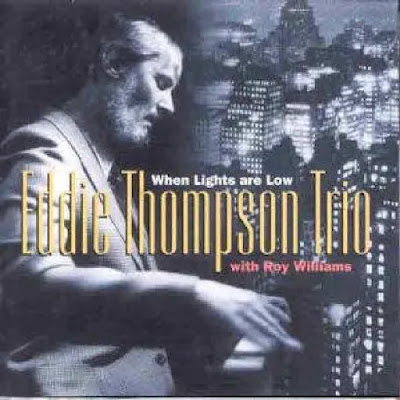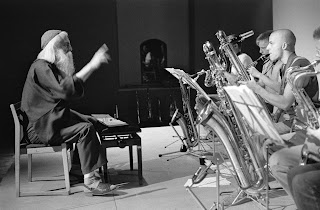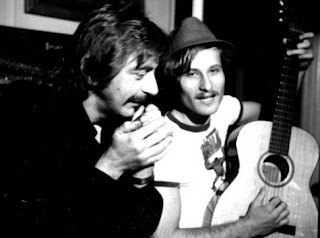Carl
Story (May 29, 1916 – March 31, 1995 was an American bluegrass musician, and
leader of his band the Rambling Mountaineers. He was dubbed "The Father of
Bluegrass Gospel Music" by the governor of Oklahoma. He recorded more than 65 gospel albums, most of them on
the Starday label.
Story
was born in Lenoir, North Carolina, United States, into a musically inclined
family. His mother played the guitar and his father was an old-time fiddle
player who enjoyed collecting recordings of Charlie Poole, Grayson and Whitter,
and others. Carl took up the fiddle at
age nine and eventually learned guitar and clawhammer banjo. In the early
1930s, after winning a fiddle contest, he joined J. E. Clark and the Lonesome
Mountaineers performing at WLVA in Lynchburg, Virginia. In 1934, he formed the
Rambling Mountaineers together with banjo player Johnny Whisnant and guitarists
Dudley Watson and Ed McMahan.
.jpg)
Within
a year they played over radio station WHKY in Hickory, North Carolina. It later
led to performances at WSPA in Spartanburg, South Carolina and WWNC in
Asheville, North Carolina. They recorded for ARC in 1939 and Okeh Records in
1940; however, these recordings were never issued. Story played with Bill
Monroe in 1942 as a fiddler - replacing Howdy Forrester who had been drafted -
but eventually Story was also drafted in October 1943.

After
his discharge from the U.S. Navy in 1945, he began reforming and performing
with his Rambling Mountaineers on the Mid-Day Merry-Go-Round show at WNOX in
Knoxville, Tennessee. In 1947, he recorded for the Mercury label. At the
recording sessions of 1947, Story temporarily labelled his band the Melody Four
Quartet. During the 1950s, Carl Story's Rambling Mountaineers performed on the
Farm and Fun Time Show at WCYB in Bristol, Virginia and on the Cas Walker Show
over WBIR-TV in Knoxville, Tennessee. His
Mountaineers also appeared on radio stations WAYS in Charlotte, North Carolina,
WEAS in Decatur, Georgia, and WLOS in Asheville, North Carolina.

He had a new
recording contract on Columbia Records in 1953. Two years later he was back to
Mercury Records. In 1957, he switched label to Starday Records, where he stayed
for eighteen years. Many of Carl Story's Starday Records albums featured the
talents of the Knoxville-based Brewster brothers, Bud and Willie G., along with
Claude Boone. It was an extremely talented line-up of musicians. They traveled the
country performing great shows and selling lots of records. In
early 1957, Carl and his band stopped in Monticello, Kentucky for a show. It
was there that he met his wife-to-be, Helen Guffey. In the fall of 1957, Carl
returned to Monticello and was hired as a disc jockey at WFLW radio station. He
re-met Helen and they started dating.

About the time that Carl began living and
working in Monticello, Mercury Records released the very first bluegrass gospel
album ever: "Gospel Quartet Favorites" by Carl Story, which contained
timeless classics like There's A Light At The River, Family Reunion and My Lord
Keeps a Record, all of which exemplified Story’s raw-edged, “mountain style” of
bluegrass singing defined by his distinctive high baritone harmony part and
excellent songwriting ability. Following the album's release, Carl and Helen
were married. The date was July 17, 1959. They moved to South Carolina, but
returned to Monticello in November of 1960, where Carl began a second tenure at
WFLW.
 |
| Helen and Carl Story |
Carl
and his wife Helen left Monticello in late 1960 or early 1961 and moved to
nearby Albany, Kentucky, where Carl worked for a few months at WANY radio
station. Soon, Carl and Helen left Albany and moved to South Carolina. Carl
Story spent the last thirty years of his life in Greer, South Carolina.
In
the 1970s, Carl recorded for several labels, most notably Atteiram Records of
Marietta, Georgia, and the newly founded CMH label of Los Angeles, a joint
venture involving Arthur “Guitar Boogie” Smith and former Starday staffer
Martin Haerle. Initial releases on CMH
usually consisted of lavishly produced two-LP sets that featured re-recorded
versions of past hits. Such was the case
with Carl’s The Bluegrass Gospel Collection.
Single CMH albums included Mountain Music and A Lonesome Wail From the
Hills.

Carl
spent the last thirty years of his life in Greer, South Carolina, where he
headquartered the Rambling Mountaineers.
As he had done throughout the earlier portions of his career, he
supplemented his touring schedule by working during the week as a disc
jockey. His last DJ work was a five-year
stint on WESC in nearby Greenville, South Carolina. Carl passed away in March of 1995 from complications
of heart bypass surgery. He was 78 years old.
His funeral was attended by bluegrass royalty, from Bill Monroe on down.
He
was placed in the Bluegrass Hall of Fame in 2007.
(Edited
from Wikipedia & Bluegrass Hall Of Fame)













.jpg)


.jpg)

















.jpg)









.jpg)










